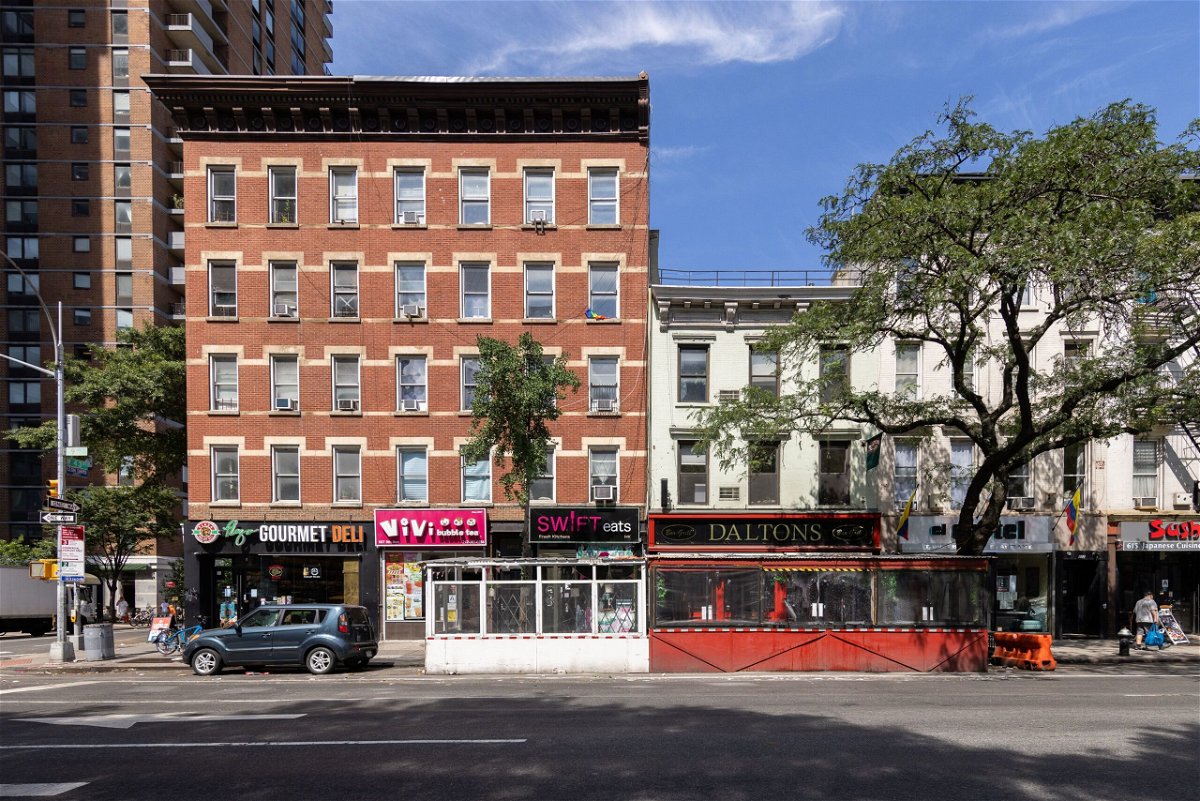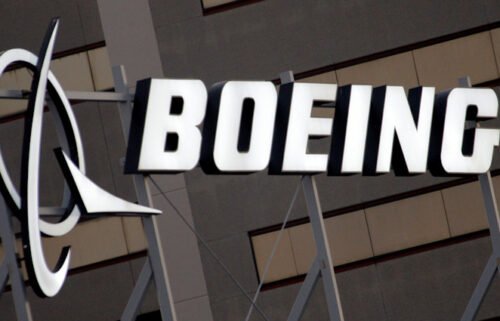Why cities are cracking down on free parking

Outdoor dining areas are pictured in the Hell's Kitchen neighborhood of New York.
New York (CNN) — A small slice of pavement is sparking a turf war in US cities.
You probably don’t think much about street curbs. But they are some of cities’ most valuable and busy real estate.
There are a slew of users and uses that compete for curb space. Pedestrians crossing. Residents looking for parking. Workers dropping off food and Amazon packages. Buses and school buses. Bicyclists. Pick-ups and drop-offs for people with disabilities. Dogs doing their business. Sidewalk restaurants. Food trucks and food deliveries. Emergency vehicles. Garbage trucks. Electric vehicle charging stations. And more.
The Covid-19 pandemic worsened the street-side chaos: outdoor dining sheds opened, package and food deliveries surged, and car and pet ownership spiked. But this prioritized piece of real estate is still primarily designed for one use — parking — and it’s often for free.
But now, a growing number of cities are trying to make curbs more efficient and accessible for everyone who has a claim to them. The solution, some advocates say, is removing free parking and charging for spots based on demand.
“Curbs are some of our cities’ most valuable assets,” said Chrissy Mancini Nichols, the national director of curb management and new mobility at Walker Consultants, a planning and design firm that advises cities. “They can be so many more things than where a vehicle sits for free.”
“Curb space has become an undervalued free-for-all, and cities are leaving billions in revenue on the table,” Nichols added.
Still, much of American infrastructure is designed explicitly for cars over everything else. And for people who drive, business owners who depend on parking around their stores, residents who commute by car and others, eliminating or charging for parking spots at the curb could be a burden.
Free parking
The root of the chaos at the curb stems from free on-street parking, critics say.
In New York City, where only 80,000 of its 3 million curb spaces are metered, “allocating curb space to free parking in the busiest parts of the city only benefits the minority of New Yorkers who own cars and park on the street,” the city’s Department of Transportation said in a recent report on curb management reform.
Until the 1920s, permanent parking in New York City was banned. New Yorkers considered the streets built for transportation, not free car storage.
But many cities throughout the country began to bulldoze their downtowns to build more parking lots, which only incentivized car use. Now, 45% or more of the residents in many US cities own cars.
And finding a parking spot is often impossible.
Drivers searching for a space hold up traffic, pollute the air and can get in accidents. Cars block fire hydrants and occupy bus stops. Delivery trucks double-park. One study in Seattle in 2020 found that delivery drivers waste more than an hour a day looking for parking.
“You pay for everything else related to cars. The one thing you don’t pay for — curb parking — is a mess,” said Donald Shoup, an urban planning professor at the University of California, Los Angeles, and the dean of parking researchers in America.
Demand-based parking
Parking is a third-rail issue in politics. Drivers and business owners usually rebel at any proposed changes.
Cities “squander curbs for free parking for cars because drivers are the people who show up at public meetings,” Shoup said.
But the way to alleviate the parking shortage is to charge for spots based on demand, some say. Prices rise when demand for parking is high and drop when it falls.
San Francisco, Baltimore, Boston, Los Angeles, Milwaukee, Pittsburgh, Seattle and Washington, DC, are among the cities to charge market prices in recent years for on-street parking. New York City’s Department of Transportation is creating a demand-based pricing “proof of concept” this year.
“The demands in different business districts and at different times of day suggest we price curbs differently,” said Mike Estey, manager of curbside management for the Seattle Department of Transportation.
Seattle adjusts on-street parking rates based on demand — anywhere from 50 cents to $5 an hour depending on location and time of day — to achieve a goal of one-to-two free spaces available per block. The city regularly adjusts rates using data on parking occupancy and other metrics.
The demand-based pricing policy allows Seattle to better prioritize competing needs at the curb, reduce congestion, and make on-street parking more available. This means that visitors and shoppers can find a parking spot more easily, with less time spent driving around in traffic.
“What we’re trying to achieve is that the curb is well utilized for the public but visitors can find a space to park,” Estey said.
Smart loading zones
Even if cities managed their on-street parking problems for private vehicles more effectively, bikers, delivery workers, outdoor dining and other uses would still crowd the curb.
So some cities are prioritizing these alternative needs, using sensors and other technology to gather data for the first time on how curb spaces are being most utilized.
Omaha, Nebraska, and other cities have created “smart loading zones” in the busiest areas of the city where drivers use an app to reserve available spots for loading and unloading goods and are charged based on demand.
Cities are trying to manage congestion from deliveries in other ways, too.
Los Angeles, Boston, Minneapolis, and Philadelphia are testing cargo bikes to replace delivery vans.
“This bike delivery pilot will support restaurants with an affordable, green, and convenient delivery option while reducing congestion on our streets,” Boston Mayor Michelle Wu said in August.
The-CNN-Wire
™ & © 2023 Cable News Network, Inc., a Warner Bros. Discovery Company. All rights reserved.

